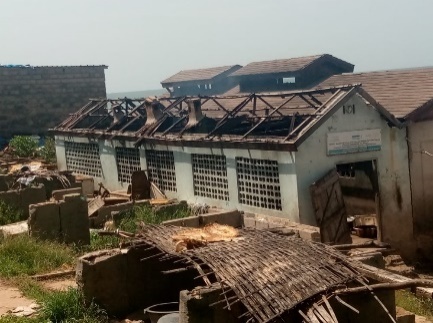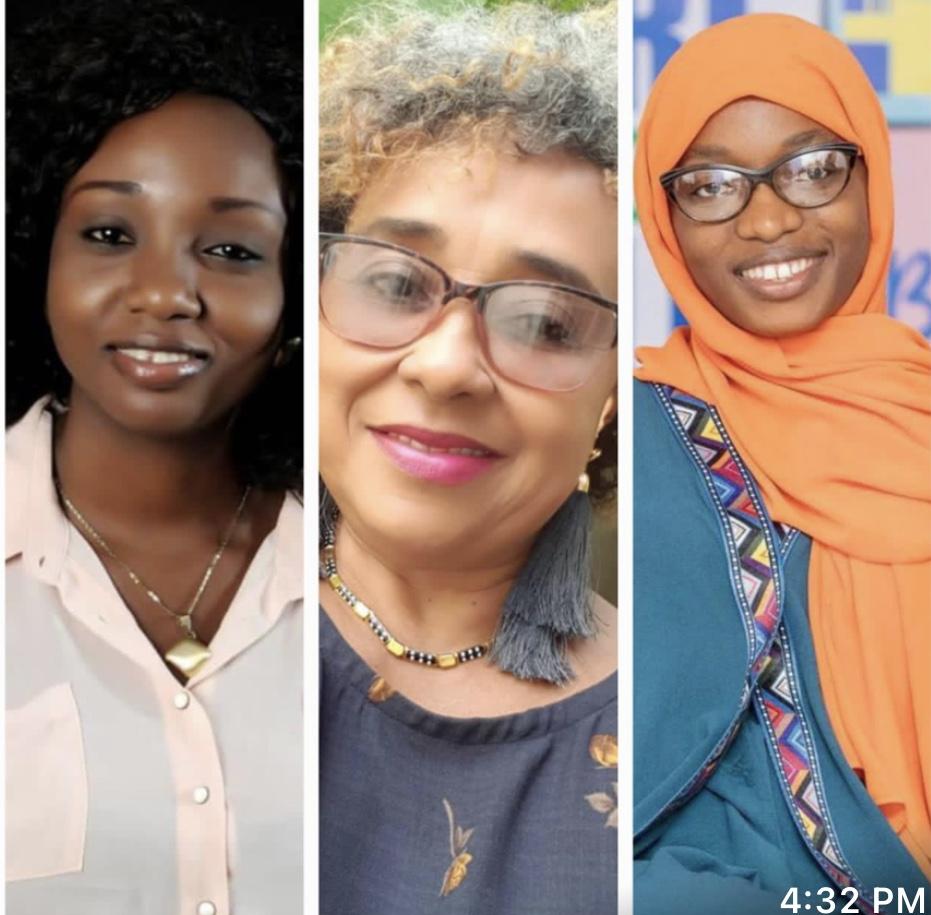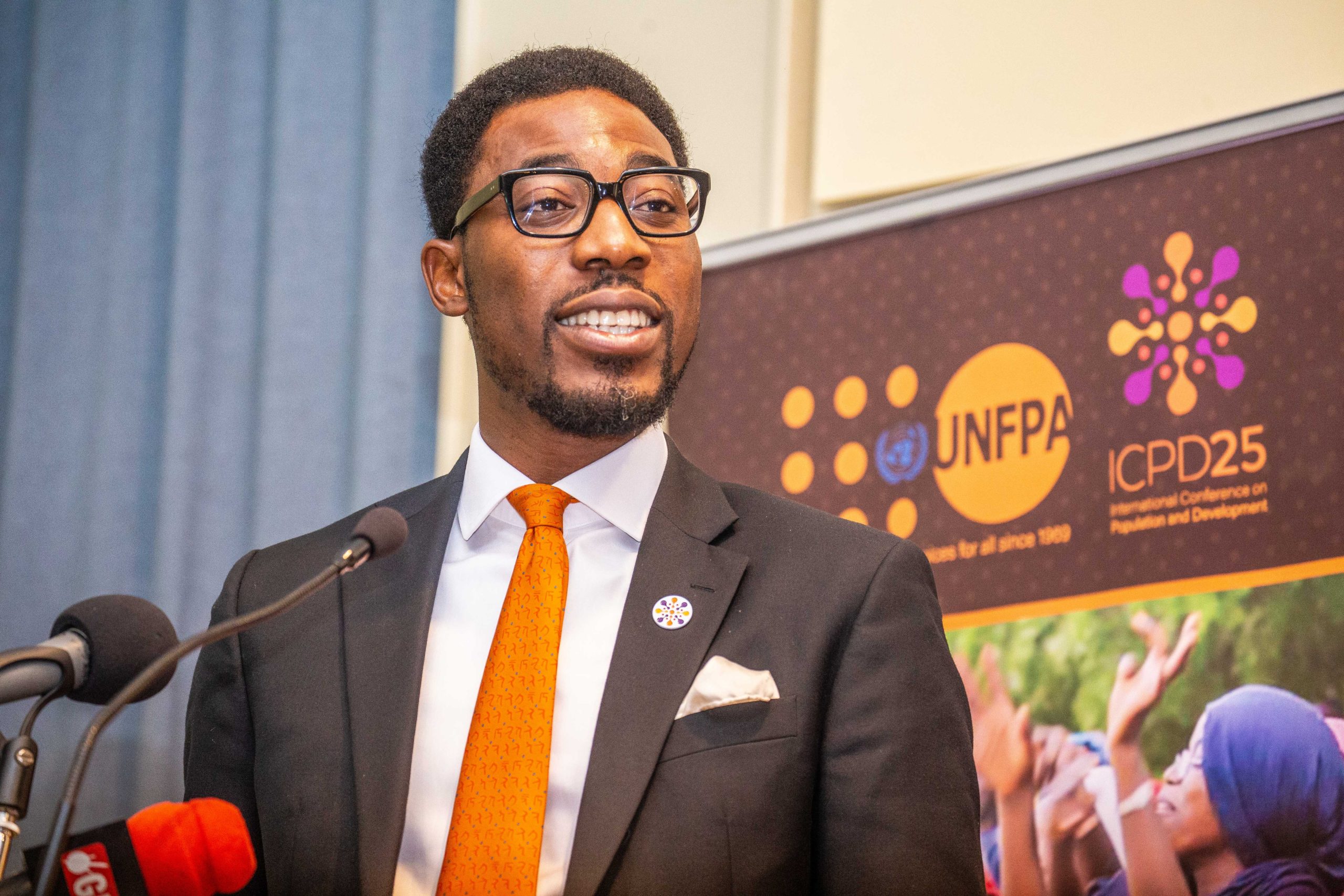WHAT IS GENDER BASED VIOLENCE?
Gender Based Violence (GBV) is a term used to denote harm inflicted upon individuals and groups that is connected to normative understanding of their gender.
Vulnerable persons who are the major victims of GBV in this context are women (because of their fragile makeup), the girl child, and children (boys and girls aged from 0 – 8), as they are commonly the victim of Gender Based Violence. Therefore, Violence against Women (VAW), extended to girls as Violence against Girls (VAG), is terms used interchangeably with GBV.
Violence against women and girls takes different patterns; domestic violence, sexual assault, harassment, genital mutilation and so on. This beast is rooted in gender inequality that women suffer throughout their life span especially in the continent of Africa. GBV is often considered as a form of hate crime as it is an action intended to cause destruction, pain or suffering.
Gender-Based violence which is also likened to sexual and gender-based violence (SGBV) are violence acts towards victims which are primarily women or girls. Violence towards the girl child is a global pandemic that threatens the bedrock of our society from time Immemorial.
Globally 1 in 3 women worldwide have experienced physical or sexual violence in their life time usually from someone they know. Intimate partner violence is the most common form of violence.
Globally, 1 in 3 women worldwide have experienced physical and/or sexual violence by an intimate partner or sexual violence by a perpetrator in their lifetime. But mostly intimate partner violence.
It is a bitter reality that violence towards women and girls is always on the increase when there is an economic emergency and with scarcity of data in Nigeria and Africa at large; one can only imagine what happens behind closed doors. In West Africa, Nigeria to be more precise, cases of GBV are under reported in the media, perhaps due to the issue of discrimination of the victims of such violence by the public; hence they crave anonymity, or the issues of culture and traditions that over cloud civilization, hence certain forms of violence (as found in some form of child abuse for example) are considered a norm.
An instance is a case in Kaduna State where a man was reported to have beaten an 18year old daughter into Coma along with her 2 friends, a similar case was reported of man who beat his pregnant wife to death and a girl who was Gang raped during the lockdown.
Several cases of minors being defiled and cases considered more sensitive those of a spouse that is the abuser. This has very serious unhealthy future implications, as there is a growing norm of the culture of silence.
GENDER BASED VIOLENCE Vs COVID 19
The COVID-19 pandemic has proffered a lock down as mitigation and a measure to the containment and spread of the virus, however most governments have not considered that majority of her population which is women and children are vulnerable, and most of them will be locked down with an abuser.
Perpetrators of physical violence towards the girl child may be either from a woman or a Man, but men tend to abuse their children or wards physically than the women. This may include beatings, excessive punishment, starvation and deprivation of some basic rights.
Also, the fact is that no one prepared for the global lockdown, most people never saw it coming, therefore lots of people especially men whom are believed to be the bread winners of their families do not have the means to provide adequately for their family, and hence they become aggressive.
Studies shows that child abuse is related to parental stress, poor impulse control and social isolation as well as factors such as poverty and lack of social capital.
This inability to provide brings in a feeling of irresponsibility and frustration, hence arising to different displays of aggression, but is not in any way a license or excuse for anyone to become abusive, as the intentionality or unintentionality of abuse/violence does not reduce its effect on the abused/victim.
In China, United Kingdom, the United States and other developed countries, the World Health Organization (WHO) suggests an increase in domestic violence towards women. According to Julienne Lusenge ‘’This pandemic will increase the precariousness of women and girls’
Situations and heighten their vulnerability”.
We have seen this assertions payout as China reports on Gender Based Violence tripled during the lockdown and several countries as well.
For many women and girls, the threat looms largest where they should be safest – in their own homes”.
Now everyone should agree with the new appeal for peace at home — and in homes — around the world.
Countries have called for quarantines and lockdowns to slow the spread of the respiratory virus that has sickened more than 1.25 million people worldwide and killed nearly 70,000.
These stay at home orders mean many women and girls are stuck in crowded homes with men who have lost their jobs or have no outlet for their frustrations, such as watching sports or meeting friends at a local bar, and are instead taking them on out on them.
It is quite perturbing to realize that the lock down enforced to curb the menace of COVID-19, will likely create more problems as vulnerable persons are being forced to stay and share same space with their abusers, especially for a perpetrator who is close or intimate for a longer period of time with little or no access to help and support systems whether formal or not, enduring physical and/or sexual abuse with no
hope.
The U.N. secretary-general warned that the increase in social and economic pressures brought on by the coronavirus pandemic has led to a global increase in violence against women and girls.
Most Governments in Africa are implementing policies, but groups working to end VAW are saying victims’ traumas are elongated, following the inability of avenues where they can lodge complains. Many countries have reported a surge in domestic violence incidents and calls to abuse hotlines since the pandemic started spreading globally earlier this year.
In France, domestic violence rates surged by a third in one week, in South Africa, authorities received nearly 90,000 reports of violence against women in the first week of its lockdown.
Australia’s government says online searches for support on domestic violence have risen 75%, while in Turkey, activists are demanding greater protections after the killing of women rose sharply after a stay at home order was issued March 11.
In some cities, domestic violence shelters have been commandeered as health centers. “I urge all governments to make the prevention and redress of violence against women a key part of their national response plans for COVID-19,” Guterres said of the disease caused by the coronavirus.
He said that includes declaring shelters as essential services, setting up emergency warning systems in pharmacies and grocery stores, declaring shelters essential services, and creating safe ways for women to seek support, without alerting their abusers.
The health impacts of violence, particularly intimate partner/domestic violence, on women and their children are significant. Violence against women can result in injuries and serious physical, mental, sexual and reproductive health problems, including sexually transmitted infections, HIV, and unplanned pregnancies as well as sexually transmitted diseases.
HUMAN RIGHTS AND THE RULE OF LAW
Gender based Violence is a Human Rights Issue; One of the dividend of democracy is respect for Human Rights and the rule of law.
WHO says, globally, as many as 38% of murders of women are committed by a male intimate partner.
Violence against women; particularly intimate partner violence and sexual violence, is a major public health problem, human rights violation, and a violation of women’s human rights
.
The Universal Declaration of Human Rights (UDHR) has been instrumental in encouraging the notion of human dignity in international law, providing a legal and moral ground for improved standards of care on the basis of our basic responsibilities towards each other as members of the “human family”, and giving important guidance on critical social, legal and ethical issues.
WOMEN RIGHTS ARE HUMAN RIGHTS. Violence against women is deeply rooted in inequality, linked to the age long Patriarchy system; there are laws and policies that are against Gender Based Violence this needs to be implemented.
The Protocol on women’s rights; The National Gender policy is hardly implemented. If we do not respect Human Rights and the Rule of Law how can we demand accountability?
Accountability here is cross cutting; individuals, government and civil society just as we all have to be accountable. For instance under the United Nations Human Rights treaties, states have the obligation under the African Charter and People’s Right and the protocol to the African Charter on the Rights of women in Africa (Maputo Protocol) to submit regular reports on measures they have taken to implement treaties. The report, and shadow reports (Which I believe has been underused), submitted by civil society organizations form the basis for a dialogue between the state and the African Commission on Human and people’s Rights.
The Commission then adopts concluding observations in which it highlights positive factor and negative developments then makes recommendation to the state to improve the implementation of the charter and protocol; this can only be possible in an active citizen sector.
Policies should not be like personal New-year-resolutions that we soon forget, we must be able to sustain it and be accountable.
Gender Based Violence during and after the Global lockdown is a sensitive matter everyone should be involved in, Do not be silent if you are abused, do not be silent if you see or hear someone being abused, help victims of violence get justice as Desmond Tutu puts it ‘’ If you see injustice and say nothing about it, you have taken the side of the oppressor’’.
Recommendation GBV Vs COVID-19 As the lockdown continues with lots of countries in Africa extending their lockdown period, we are recommending the following:
1. Government should include organizations working with women and Children, especially in the aspect of GBV as part of the essential units.
2. Governments should enforce laws that promote zero tolerance for violence against women and girls.Abusers of women and Girls should be punished to serve as deterrent to potential abusers.
3. There should be radical sensitization of the public on the subject of GBV by both Governmental and Non-governmental Organizations. Those who are experiencing it should be taught how to speak up, and not die in silence. Men also should be trained against such violence, and to be able to talk to other men .
4. Escape routes should be created for women and children, so that they can be able to report cases of abuse even during the lockdown.
5. Safe space centers and other temporary facilities for shelter should be made available by the government, for women, girls, and children as a measure of separation from an abuser.
6. Women should be given adequate access to appropriate, needed information.
7. Parents, wards and guardians should learn how to cope with stress.
8. Every citizen should have an attitude of responsibility: report every case of violence.
9. Sharing and distribution of palliatives, to reduce frustration of men unable to readily provide.
10. To keep handy information, about violence against women hotlines, social workers, child protection or nearest police station, shelters or support services that are accessible.
11. Donor Organizations should increase research funding for Gender Based Violence
Jennifer Agbaji Esq, Founder of The Basileia Vulnerable Persons Rights Initiative, Commissioner for Gender, Agriculture and Rural Economy for the African Youth Commission.
Also the Focal Person, Association Against Child Sexual and Gender Based Violence.
jenniferyere@bvpright.org




